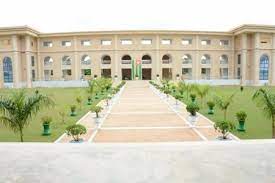The document was promulgated on May 6th, following recent legislative elections where the ruling Union for the Republic (UNIR) secured a dominant majority.
The President’s role is significantly reduced. The Parliament elects the President and appoints a Prime Minister-like figure, the President of the Council of Ministers.
Current President Faure Gnassingbé will remain in office until the new Parliament convenes and elects his successor. A newly established Senate will share presidential election duties with the National Assembly. Municipal and regional councils will elect two-thirds of the Senate, with the remaining seats appointed by the current President. The President retains some symbolic authority, such as accrediting ambassadors and awarding national honors. However, power to shape policy and lead the government resides with the Prime Minister-like President of the Council.
The swift implementation timeline raises concerns among some regarding transparency and potential consolidation of power within the dominant UNIR party. However, the government maintains that the process adheres to the newly adopted constitution.
The official installation of the Senate and subsequent elections for President and President of the Council will mark the official launch of this new chapter in Togolese governance.
AC/lb/abj/APA


